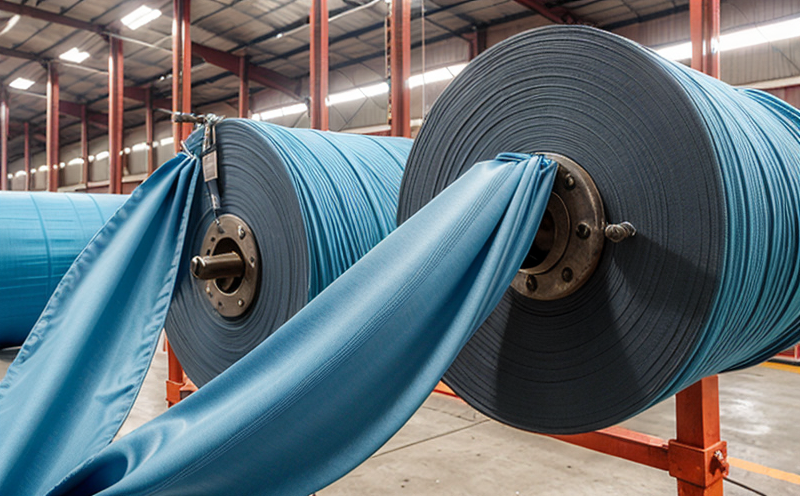Evaluating tensile strength for textile materials in industrial use
Evaluating Tensile Strength for Textile Materials in Industrial Use Unlocking Quality and Performance
In the world of textiles, tensile strength is a critical parameter that determines the durability and reliability of fabrics, yarns, and threads used in various industrial applications. From clothing and upholstery to medical devices and construction materials, textile products are subject to stress, strain, and wear, which can compromise their performance and safety. In this context, evaluating tensile strength for textile materials in industrial use is essential for businesses seeking to ensure the quality and reliability of their products.
At Eurolab, we offer a comprehensive laboratory service that specializes in evaluating the tensile strength of textile materials used in industrial applications. Our expertise and state-of-the-art facilities enable us to provide accurate and reliable results, empowering our clients to make informed decisions about product development, quality control, and supply chain management.
What is Tensile Strength?
Tensile strength is a measure of the maximum stress a material can withstand while being stretched or pulled before failing. It is typically expressed in units of force per unit area, such as Newtons per square millimeter (N/mm²) or Pounds per square inch (psi). Tensile strength is an essential property of textile materials, as it directly affects their performance, durability, and safety.
Why is Evaluating Tensile Strength for Textile Materials in Industrial Use Important?
Evaluating tensile strength for textile materials in industrial use offers numerous benefits to businesses across various industries. Here are some key advantages
Improved Product Reliability By evaluating the tensile strength of textile materials, businesses can ensure that their products meet performance and safety standards, reducing the risk of product failure and associated costs.
Enhanced Quality Control Our laboratory service enables companies to monitor the quality of their raw materials, intermediates, and finished goods, ensuring compliance with regulatory requirements and industry standards.
Increased Efficiency By identifying potential issues early on, businesses can optimize production processes, reduce waste, and improve product yield.
Cost Savings Evaluating tensile strength for textile materials in industrial use helps companies avoid costly rework, recalls, and warranty claims associated with defective products.
Competitive Advantage Businesses that prioritize quality and reliability through tensile strength evaluation can differentiate themselves from competitors, enhancing their market reputation and customer loyalty.
Key Benefits of Using Eurolabs Tensile Strength Evaluation Service
Here are some key benefits of using our laboratory service
Accurate and Reliable Results Our state-of-the-art facilities and experienced technicians ensure accurate and reliable results, providing a solid foundation for informed decision-making.
Fast Turnaround Times We offer quick turnaround times without compromising on accuracy, enabling businesses to respond rapidly to changing market demands.
Compliance with Industry Standards Our laboratory service is designed to meet or exceed industry standards and regulatory requirements, ensuring compliance and reducing the risk of non-compliance.
Expert Consultation Our team of experts is available to provide consultation and guidance on product development, quality control, and supply chain management.
QA Evaluating Tensile Strength for Textile Materials in Industrial Use
Here are some frequently asked questions (FAQs) about evaluating tensile strength for textile materials in industrial use
What types of textile materials can be evaluated for tensile strength?
We evaluate the tensile strength of various textile materials, including fabrics, yarns, threads, and fibers.
How is tensile strength evaluated?
Our laboratory uses standardized test methods to evaluate tensile strength, which typically involve stretching a sample to its breaking point while measuring the force required.
What are the benefits of evaluating tensile strength for textile materials in industrial use?
Evaluating tensile strength helps businesses ensure product reliability, quality control, and efficiency, reducing costs and improving competitiveness.
Conclusion
Evaluating tensile strength for textile materials in industrial use is a critical aspect of ensuring product quality, performance, and safety. At Eurolab, we offer a comprehensive laboratory service that specializes in evaluating the tensile strength of various textile materials used in industrial applications. Our expertise, state-of-the-art facilities, and fast turnaround times enable businesses to make informed decisions about product development, quality control, and supply chain management. Contact us today to learn more about our laboratory services and how we can help your business succeed.
Read More About Eurolabs Laboratory Services(services)




